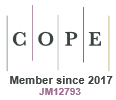Articles citing this paper
Enhancing reliability of elemental speciation results – quo vadis?
Ralph E. Sturgeon A C and Kevin A. Francesconi BA Institute for National measurement Standards, National Research Council Canada, Ottawa, ON, K1A 0R9, Canada.
B Institute of Chemistry – Analytical Chemistry, Karl-Franzens University Graz, 8010 Graz, Austria.
C Corresponding author. Email: ralph.sturgeon@nrc.ca

Ralph Sturgeon is currently a Principal Research Officer and Group Leader for Chemical Metrology at the Institute for National Measurement Standards, National Research Council Canada. His interests lie in inorganic analytical chemistry, comprising trace element analysis, vapor generation, instrument development, organometallic speciation and production of Certified Reference Materials with a focus on atomic and mass spectrometric detection. He is an Editor for Spectrochimica Acta Reviews, and currently serves on the advisory boards of eight other international analytical chemistry journals. His contributions to analytical atomic spectroscopy have been recognised through a number of awards, including Fellowship in the Chemical Institute of Canada (1990), the Barringer (1986) and Herzberg (2002) awards of the Spectroscopy Society of Canada, the McBryde Medal (1990) and Maxxam Award (2007) from the Chemical Institute of Canada and the Ioannes Marcus Marci award (1998) of the Czech Spectroscopic Society. |

Kevin Francesconi, a graduate from Curtin University of Technology (B.App.Sc.) and the University ofWestern Australia (M.Sc. and Ph.D. in organic chemistry), worked in Australia for over 15 years in marine environmental research before moving in 1996 to the Ecotoxicology Group at the University of Southern Denmark. In 2002, he moved toAustria where he is currently Professor of Analytical Chemistry at the Karl-Franzens University, Graz. His research is focussed on biotransformation processes for metals and metalloids in the environment, and their implications for human health. |
Environmental Chemistry 6(4) 294-297 https://doi.org/10.1071/EN09074
Submitted: 19 June 2009 Accepted: 27 July 2009 Published: 25 August 2009


